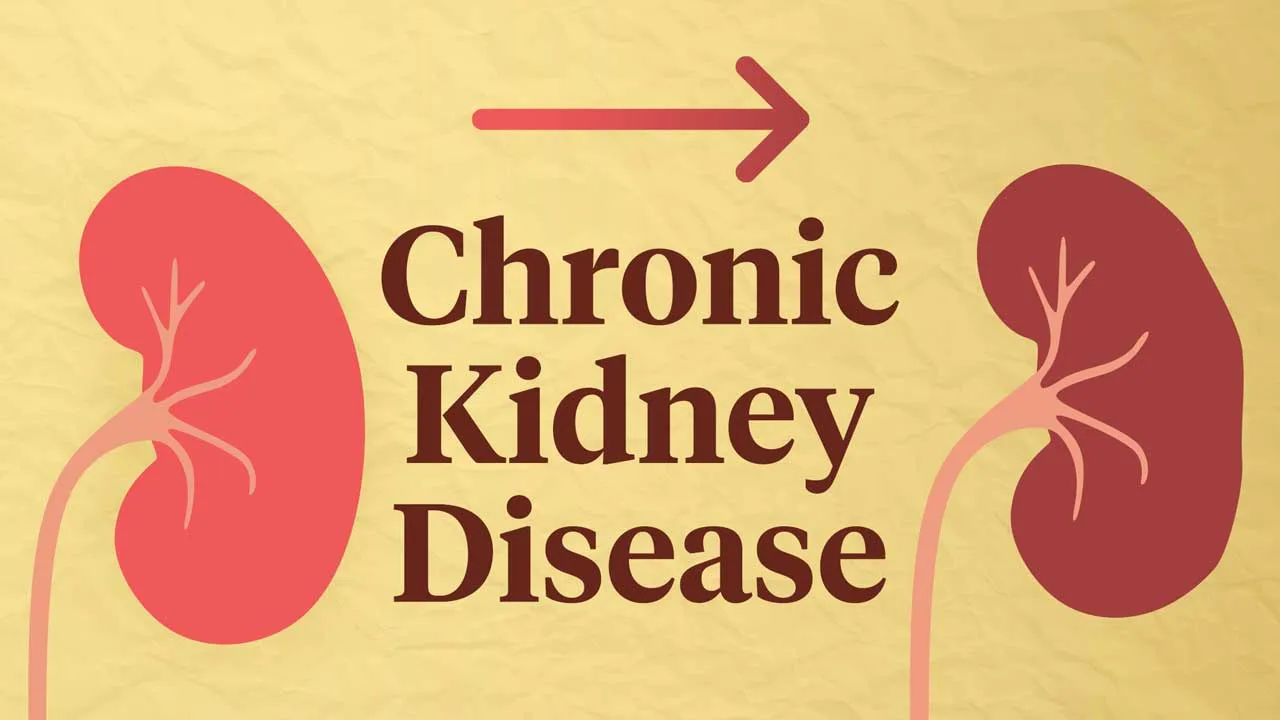
Chronic renal disease and chronic kidney disease CKD mean that there is damage to Kidneys and they are not working properly as they should. The Kidney organs are filters in your body. It filters out waste products, toxins, and excess fluid from your blood. They also help with other functions like red blood cells and bone health. When you are Kidneys unable to function properly it can't filter waste it means the waste builds up in your body.
Chronic kidney disease is called chronic because you are kidney functions slowly reduce over time. Chronic kidney disease can lead to end-stage treatment for kidney disease which is also called kidney failure. Not everyone with chronic kidney disease is at risk of Kidney failure but CKD will often worsen without treatment.
In the early stages of chronic kidney disease individuals usually do not show noticeable symptoms. As the CKD worsens symptoms may include:
Chronic kidney disease occurs when Kidneys are damaged and unable to filter blood, causes include:
High blood pressure (hypertension): It is one of the most common causes of chronic kidney disease.
Diabetes: It is another common cause of Chronic Kidney Disease.
Glomerulonephritis: This type of Kidney Disease involves damage to tiny filters (glomeruli) which are the filtering units inside your kidneys.
Polycystic kidney disease: It is a genetic disorder that causes many cysts filled with fluid to grow in your Kidneys, decreasing the ability of Kidneys to function.
Membranous nephropathy: It is a disorder where the immune system of the body attacks the filtering membrane that filters waste in your kidney.
Obstructions of the urinary tract: From enlarged prostate, kidney stones, or cancer.
Vesicoureteral reflux: It is a medical condition in which year urine flows backward from the bladder to your kidneys.
Nephrotic syndrome: It is the collection of symptoms that indicate kidney Disease.
Pyelonephritis: Recurrent kidney infection.
Diabetes-related nephropathy: It is a dysfunction or damage of one or more nerves due to diabetes.
Lupus and other immune system diseases including: polyarteritis nodosa, Goodpasture syndrome, sarcoidosis, and Henoch-Schönlein purpura can cause kidney problems.
Chronic kidney disease can happen to anyone. But you are more at risk if you have:
Your doctor will instruct urine blood and imaging tests to check kidney function:
Blood tests (GFR): The blood test will check your GFR rate is referred to as glomerular filtration rate. It is used to determine the stage of Kidney Disease. This describes how efficiently your Kidneys are working.
Blood tests serum creatinine level: This tells how efficiently Kidneys are removing this waste product. Creatinine is a waste product generated from normal muscle metabolism and is excreted in your urine.
Urine tests: It will look for blood and protein in your urine.
Imaging tests: Such as computerized tomography (CT) also called CT scan, ultrasound, or magnetic resonance imaging (MRI).
If you are a resident of Delhi, Chronic kidney disease in Delhi diagnoses are available in many hospitals and clinics.
The five stages of chronic kidney disease are the stages Based on how efficiently your kidneys are filtering waste from your blood. The stages range from stage 1 to stage 5.
Stage 1: GFR (mL/min) 90 and higher - It’s a sign of mild kidney damage.
Stage 2: GFR (mL/min) 60 to 89 - It’s more signs of mild kidney damage.
Stage 3a: GFR (mL/min) 45 to 59 - It means mild to moderate kidney damage.
Stage 3b: GFR (mL/min) 30 to 44 - It means moderate kidney damage.
Stage 4: GFR (mL/min) 15 to 29 - It means severe kidney damage and and close to not working.
Stage 5: GFR (mL/min) Less than 15 - kidneys have stopped working or are very close to failing.
complications of chronic kidney disease include:
Anemia: low red blood cell count
Weak and brittle bones.
Gout.
Metabolic acidosis: It is a chemical imbalance in your blood due to a decrease in kidney function.
High blood pressure.
Heart disease and blood vessel disease: It includes an increased risk of heart attack and stroke.
Nerve damage.
Hyperkalemia: High potassium, It affects your heart’s ability to function properly.
Hyperphosphatemia: High phosphorus
Infections: Increased risk of infection because of the body's weak immune system.
Fluid buildup: This leads to swelling in your ankles, hands and feet.
Chronic kidney disease in India treatments are available in many hospitals.
First seeing your doctor regularly throughout life is a good habit for preventing chronic kidney disease.
If you are a resident of Delhi, there are many options for Chronic kidney disease treatment in Delhi.
While chronic kidney disease mainly leads to death if not rated properly on time, however many people with this disease can live long and happy lives after treatment. For most patient who gets treatment for chronic kidney disease and can manage their condition well, the disease will never progress to kidney failure. That is why it is important to work with your doctor on a treatment plan.
The leading cause of death in patients with chronic kidney disease treatment is actually heart disease, complications of CKD. You should also manage your other health conditions that can have a negative impact on your Kidneys and is a good practice for maintaining your kidney function.
Early detection of chronic kidney disease can help to prevent the condition from worsening to kidney failure. There are many hospitals that provide Chronic kidney disease treatment in India.
Second Floor, 77, Block C, Tarun Enclave, Pitampura, New Delhi, Delhi, 110034